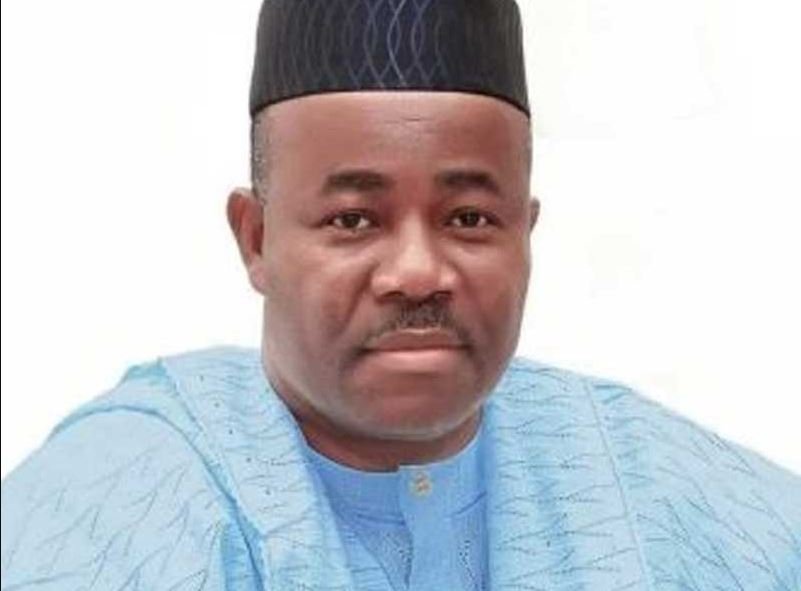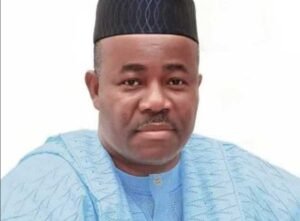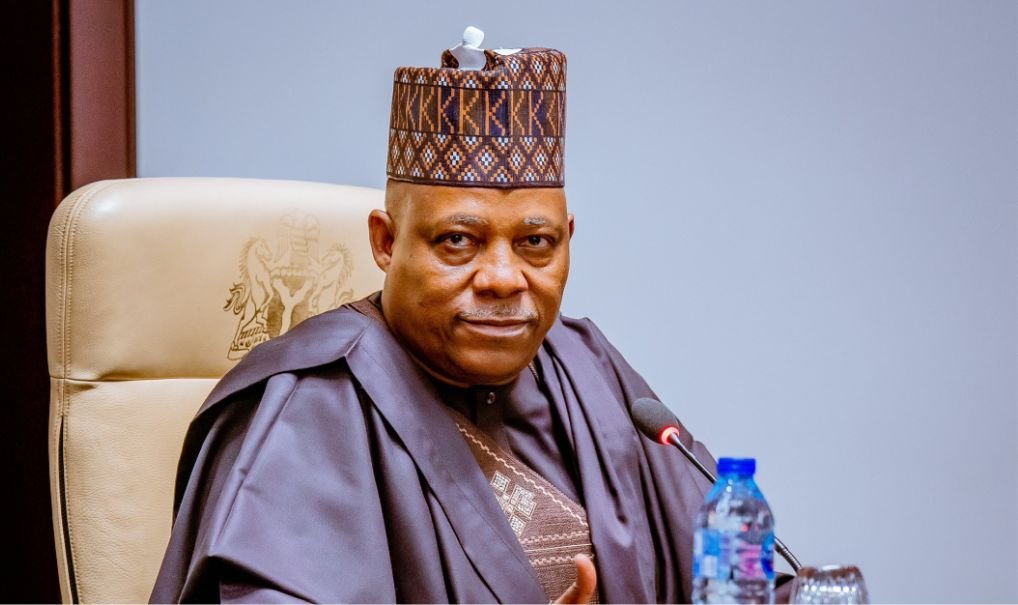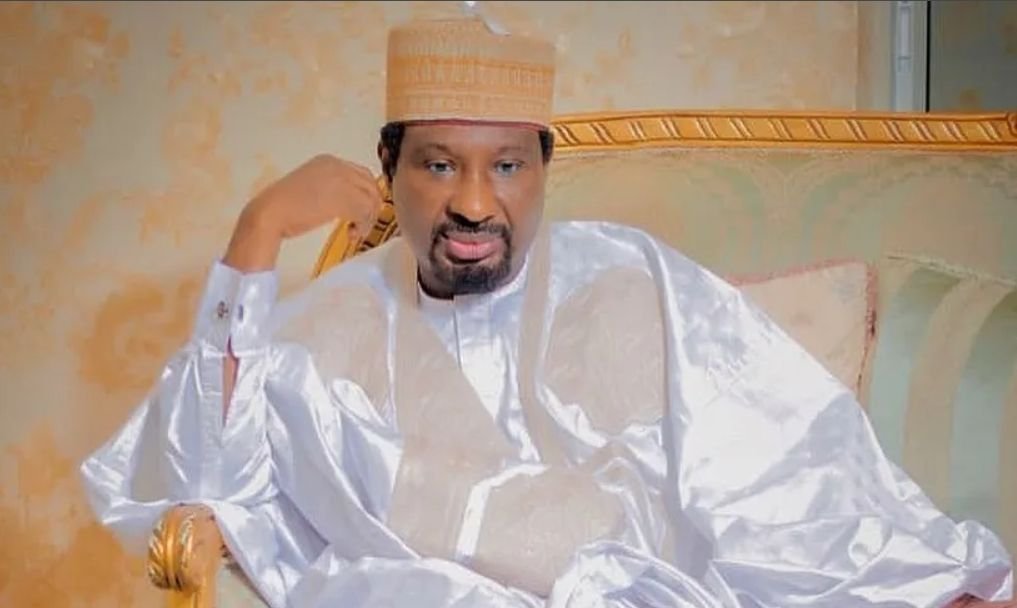
Who Is The Senate President Of Nigeria? (Currently)
The current Senate President of Nigeria is Godswill Akpabio, having assumed office on June 13, 2023. Akpabio, a member of the All Progressives Congress (APC), represents the Akwa Ibom North-West Senatorial District.

He has held different political positions, including serving as the Governor of Akwa Ibom State from 2007 to 2015. Akpabio also served as a senator and as the Minister for Niger Delta Affairs.
Born on December 9, 1962, Akpabio hails from Ukana, Ikot Ntuen, Essien Udim, in what was then the Eastern Region of Nigeria (now part of Akwa Ibom State).
His mother raised him after losing his father at an early age. Akpabio had his education at Methodist Primary School in Ukana, the Federal Government College in Port Harcourt, and the University of Calabar, where he obtained a degree in Law.
Akpabio’s political career began with his appointment as Honourable Commissioner for Petroleum and Natural Resources in Akwa Ibom State. He later became the governor of the state, serving two terms from 2007 to 2015.
During his tenure, he was recognized both nationally and internationally, receiving various honors and awards for his contributions to governance and development.
In addition to his political career, Akpabio has been involved in other professional endeavors. He briefly worked as a teacher and as an associate partner with a law firm in Nigeria.
He also held executive positions in telecommunications companies, contributing to the development of the telecoms industry in Nigeria.
Akpabio’s political journey has seen him switch party affiliations, from the Peoples Democratic Party (PDP) to the All Progressives Congress (APC).
His defection was drawn by a political rally in his hometown, Ikot Ekpene, Akwa Ibom State. He has also held leadership positions within political parties, including serving as the chairman of the PDP Governors Forum.
Despite his political successes, Akpabio has faced allegations of corruption. He has been investigated by the Economic and Financial Crimes Commission (EFCC) over accusations of misappropriating funds during his time as governor. However, no charges have been filed against him.
READ ALSO: Complete List Of Vice Presidents Of Nigeria From 1960 Till Date
What Is The Role Of The Senate President In Nigeria?
The Senate President in Nigeria is an important figure in the country’s legislative and governance system, holding significant responsibilities and powers.
This position is the highest-ranking officer in the Nigerian Senate, the upper chamber of the National Assembly.
As the presiding officer of the Senate, the Senate President plays an important part in overseeing and guiding the legislative process.
Their primary responsibility is to preside over Senate sessions, ensuring the smooth and orderly conduct of debates, discussions, and voting procedures.
The Senate President is tasked with maintaining decorum, upholding parliamentary rules and practices, and providing that the principles of democracy and due process are upheld during legislative proceedings. In addition to presiding over Senate sessions, the Senate President has several other duties:
Legislative Agenda
The Senate President works closely with the leadership of the Senate and other stakeholders to set the legislative agenda and prioritize bills and resolutions for consideration.
They play a vital role in shaping the legislative calendar and ensuring that important matters are addressed on time.
Appointment And Oversight
The Senate President is responsible for appointing members to various Senate committees, which plays a big part in monitoring proposed legislation, government policies, and appointments.
They also oversee the activities of these committees and provide their effective functioning.
Representation And Diplomacy
The Senate President serves as a representative of the Nigerian Senate and, by extension, the nation’s legislative branch.
They often engage in diplomatic activities, meeting with foreign dignitaries, heads of state, and international organizations to promote cooperation and advance Nigeria’s interests on the global stage.
READ ALSO: Complete List Of Senate Presidents In Nigeria From 1960 Till Date
Constitutional Responsibilities
The Senate President plays a part in certain constitutional processes, such as the President’s or Vice President’s impeachment, the declaration of a vacancy in the Presidency, and the confirmation of certain key government appointments.
Leadership And Unity
As the leader of the Senate, the Senate President is expected to encourage unity, collaboration, and consensus among senators, transcending party lines and regional affiliations.
They must guide complex political landscapes and find common ground on issues of national importance.
Parliamentary Procedures
The Senate President is responsible for interpreting and enforcing the rules and procedures governing the Senate’s operations. They ensure that debates, voting, and other processes adhere to established parliamentary practices and protocols.
To effectively fulfill these roles, the Senate President must understand how the legislative process works, have strong leadership skills, diplomatic understanding, and the ability to build consensus among diverse stakeholders.
The position requires a combination of political experience, legal expertise, and a commitment to upholding the principles of democracy and good governance.
READ ALSO: List Of Freedom Fighters In Nigeria
Reference Sources:


